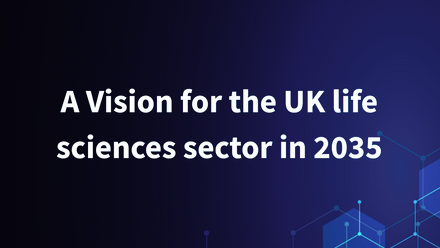Exploring the journey of Vector Bioscience Cambridge

In this blog, Vector Bioscience Cambridge's CEO and Co-Founder, Lluna Gallego, outlines the past, present and future of the company.
Tell us about your company and ambitions
Vector Bioscience is a pioneer drug delivery company developing a breakthrough platform that enables precise, controlled, and targeted release of therapeutics – including oligos and small molecules – across a broad range of diseases. Originating at the University of Cambridge, our ML-enabled nanoshuttle technology is cargo and indication-agnostic, and compatible with multiple administration routes.
We’ve raised over £3 million in non-dilutive funding, assembled a multidisciplinary team, and demonstrated in vivo proof-of-concept in some of the hardest-to-treat cancers. With a GMP-aligned manufacturing process underway and strategic partnerships advancing, our ambition is to transform how therapies are delivered, making treatments longer-lasting, more targeted, and with fewer side effects.
Ultimately, we’re working to build a future where we don’t fear cancer — because delivery is no longer the barrier to unlocking the full potential of the world’s most powerful therapies.
What is your company’s biggest achievement so far?
Our biggest achievement has been validating the potential of our MOF-based platform to solve some of drug delivery’s hardest problems — and doing so in a way that’s already attracted industry attention. We’ve shown that our technology can safely and effectively deliver therapeutics with improved biodistribution, sustained release, and enhanced efficacy in vivo, including in challenging indications.
This technical validation has enabled us to raise prestigious non-dilutive funding, build a world-class team, and initiate our first pharma collaboration — all within our first 12 months. Most importantly, we’ve laid the groundwork for clinical translation with a scalable manufacturing strategy and robust preclinical data package. These are critical milestones that move us from a scientific idea to a clinically and commercially relevant platform.
What are some of the priorities that you’re currently working on?
Over the past year, we’ve focused on strengthening the preclinical data package to demonstrate the versatility and value of our platform. This includes generating evidence across multiple models to highlight key features such as controlled release, improved biodistribution, and therapeutic efficacy.
In parallel, we have built a scalable, GMP-aligned manufacturing process — from raw materials to final formulation — to ensure product consistency, long-term stability, and regulatory readiness. All essential steps for clinical translation.
With this foundation in place, our main priority now is to secure a strategic partnership to unlock the full potential of the platform. We’re in active discussions with several pharma companies to on high-value applications where better delivery could meaningfully improve patient outcomes.
What has been the greatest benefit of being a BIA member?
The greatest benefit for us has been access to the quality network at BIA events. As an early-stage platform company, being able to connect with the right people across biotech, pharma, investment, and the broader life sciences ecosystem is key.
In addition to the network, BIA provides valuable insight into the pulse of the industry. From emerging trends to future-facing policy developments, staying informed through BIA has helped us navigating the landscape as we scale.
What excites you about the UK life sciences sector?
The UK life sciences sector combines world-class research with a growing appetite for translation — which is exciting to see. We’re seeing support for early-stage innovation, infrastructure for manufacturing and scale-up, and a strong focus on creating end-to-end pathways from lab to clinic.
What also makes the UK stand out is the ability to find the right partners, whether academic, clinical through the NHS, or commercial, to help move science forward. That mix of scientific excellence and business-minded collaboration is what gives the sector real momentum.
If you could invite any scientist or entrepreneur to dinner, who would it be and why?
I would invite Katalin Karikó. Her work on mRNA laid the foundation for one of the most transformative advances in modern medicine but for years, it was dismissed, underfunded, and sidelined. What inspires me is not just her scientific vision, but her resilience. She persisted through setbacks, rejections, and institutional resistance, all while holding onto the conviction that her research, her science could one day make a difference.
Given our focus at Vector on enabling the delivery of advanced therapeutics, including RNA, I’d be fascinated to hear her perspective, insights and tips on how she navigated the long road on translation. She was ahead of her time and she is a powerful reminder that the most disruptive breakthroughs often start with a pioneer building data and refusing to give up.




